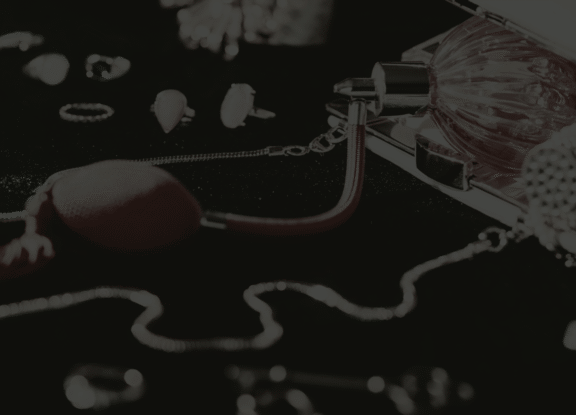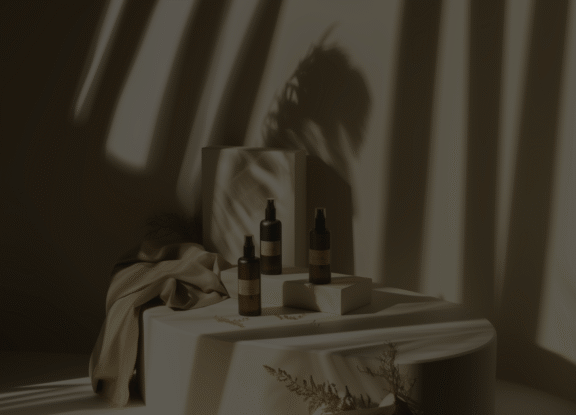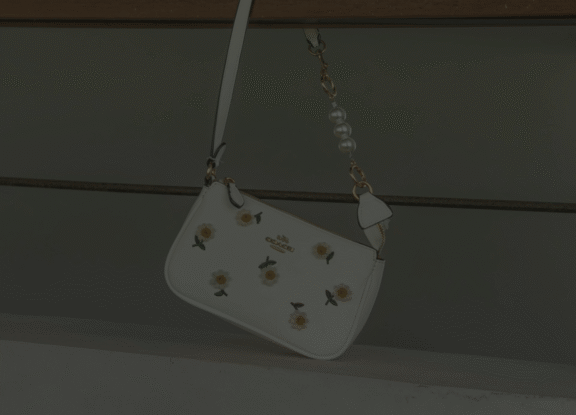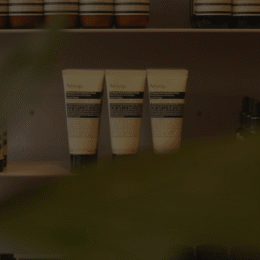Hermès doesn’t sell handbags, and you know it.
It makes modern heirlooms. You can’t buy your way in. You’re invited to buy. Eventually. If they decide you’re the right sort.
Same with Ferrari. They don’t manufacture cars—they create automotive art objects that happen to have engines. And they decide whether you’ve acquired enough pieces to be deemed worthy of an launch invitation—like they did with the Puresangue.
And Veuve Clicquot doesn’t produce champagne; they crystallise liquid celebration fuel. Ok, it’s a word salad I just made up but c’mon, it makes you feel something.
BTW, have you seen their latest collab with Jacquemus? Dreamy.
Notice something? None of these brands compete. They’ve made comparison impossible.
If people can compare you, they can commoditise you.
While the rest of the market fights bloody, hair pulling battles over “better features” and “competitive pricing,” luxury brands float above the fray in categories they created and control entirely. They don’t win the game—they change it so fundamentally that competition becomes irrelevant.
» Now imagine applying that to your brand.
More on that in a minute…
But first: how do luxury brands actually pull this off? Why does it work? And why should you stop comparing yourself to “other coaches,” “other designers,” or “other experts”?
Let’s dive in… the water’s delightful ⛱️

The Psychology of Incomparability
Here’s what luxury brands understand about human psychology that everyone else seems to miss: the moment you allow comparison, you’ve lost.
The second someone can say “this is like X but better,” you’re trapped in a feature war you can’t win. There will always be someone cheaper, faster, more convenient 🤮 But there can only be one first, one only, one category defining.
Think about it:
- When you’re comparing two vacuums, you open a spreadsheet 🤓
- When you’re considering a Birkin, you hold your breath, cross your fingers and call your bank manager to ready the funds cos moving £££££ in one transaction sounds a lot like money laundering 🫧
Luxury brands engineer what I call Category Immunity—they become so uniquely positioned that comparing them to anything else feels ridiculous.
Asking “Is a Birkin bag worth £80,000?” is like asking “Is Shakespeare worth reading?” The question itself reveals you’re missing the point entirely.
This isn’t about quality. Plenty of handbags have similar craftsmanship to Hermès. It’s about psychological positioning that makes quality comparisons feel absurd. If you’ve ever said “its a Hermès, doh” then you get it.
A true category of one doesn’t just occupy shelf space in a Sloane Street shop—it occupies mental space. The brand becomes the category, burned into your memory as the only reference point worth knowing.
Simple word association is the ultimate power move in branding—it means the brand has infiltrated your mental category.
Fast cars? Ferrari.
Posh handbags? Hermès.
Electric cars? Tesla.
Phones? Apple.
Word association is the ultimate mental monopoly.
Why Personal Brands Fail at This
If you’ve ever called yourself a better designer, a faster strategist, a more intuitive coach, congratulations — you’ve entered the arena of comparison branding and I’ve lost interest already.
If you’ve ever said any of these, we need to talk.
- “I’m a business coach, but I focus on mindset…”
- “I’m a marketing consultant, but I specialise in funnels…”
- “I’m a brand strategist, but I work with luxury…” (oh hellfire!)
See the trap? The moment you say “but,” you’ve already lost. You’re competing in someone else’s category, where the rules favour whoever got there first or whoever can go lowest on price. You’re elbowing your way into a space that was never designed for you, using up precious vital energy just to be noticed. It’s shouting “I’m different!” into a crowded room—when what you should be saying is, “I’m here. This room is mine.”
The luxury approach flips this entirely. Instead of being a “better” version of something familiar, you become the only version of something new.
If you position yourself as “better,” you’ve already agreed to play someone else’s game — using someone else’s metrics.
That’s not luxury, babes. That’s LinkedIn.
Law Roach didn’t settle for being a celebrity stylist—he crowned himself the world’s only Image Architect. That reframe didn’t just elevate his title, it repositioned the entire profession as high-concept brand work.
Zendaya in vintage Mugler, drool!
As a personal brand, you have the rare advantage of being inherently one of a kind—you don’t have to find a category, you be one. Just by being human, your perspective is already unique.
A category so specific to your customer’s worldview that competition became meaningless.
The challenge isn’t becoming different; it’s finding the right language to translate your soul into a tangible brand.


And… that’s exactly where UNIGNORABLE steps in—your next-level branding experience, where we translate your brand into a signature that can’t be copied. This is how we move from “I hope they notice me” to “They couldn’t ignore me if they tried.“

The Ferrari Principle in Action
Ferrari’s category creation gives us the perfect case study in luxury positioning psychology.
And I love supercars so it’s was inevitable that I’d eventually write about this 🏎️
Here goes…
In the 1960s, they could have competed with other sports car manufacturers on speed, price, or features. Instead, they repositioned their entire brand.
Ferrari stopped making “cars” and started creating “automotive art objects.” They didn’t build a faster car—they elevated it to a status symbol. Their waiting lists aren’t about demand exceeding supply; they’re about worthiness to buy.
The psychological magic? Once you’re not selling cars anymore, car comparisons become irrelevant. No one asks if a Ferrari is “better value” than a Porsche… the question just doesn’t compute. They operate in entirely different psychological categories. Ferrari is pure Italian drama on wheels; Porsche, on the other hand, owns the category of track-day madness disguised as a daily driver.
This shift allowed Ferrari to:
- Command pricing that has zero relationship to manufacturing costs » Pulling prices out the air. (I’m half joking here…)
- Create customer loyalty that borders on religious devotion » You’re literally joining a queue for a car, not just a waiting list.
- Attract buyers who see ownership as identity, not utility » Owning a Ferrari says something about you.
- Build brand equity that appreciates rather than depreciates » Their share price is a bit choppy right now but let’s not mention that! 😆
AD BREAK…

Tired of shouting into the dark, hoping someone finally hears you? Access Marketing Without Social Media—a 10-day email series designed to help you build an Obsession Ecosystem™ that turns “oh, that sounds like me” into “OMG, take my credit card.”
Sign up for Access »
Now back to the dispatch…
Here’s where most people get stuck: understanding the psychology is one thing. Engineering your own Category of One is entirely different.
Becoming a Category of One
Creating Category Immunity isn’t about “I help” statements or word salads describing what you do—it’s about intentional category creation.
You’re not creating something from nothing; you’re finding the overlap where your expertise, worldview, and market need intersect in a way no one else can replicate.
Step 1: Taking up Space (cos there’s always a mindset piece before you begin)
Deciding to take up space isn’t about being louder or better. It’s about declaring, with your full chest, that you belong here. You create your own room.
It takes guts to stop shape-shifting for approval and start showing up as who you really are—over and over again.
Saying: this is who I am, this is what I stand for, and this is the world I’m building. Join me…
Here’s what I wish more people understood:
When you show up as something different, people can’t categorise you. And that’s the point. You don’t get filed away as ‘just another’ anything. That little flicker of dissonance? That’s the magic. It creates intrigue. Curiosity. You become the one they can’t quite pin down—and therefore, can’t stop watching. Keep layering moments of your perspective, your approach, your way of doing things.
That’s how you build brand devotion—not in one pitch or post, but in a hundred micro-reveals. One vignette at a time.

If you want to see what’s next…
This is where we get into the moves luxury founders use to shift from service provider to Unignorable. If you’re ready to see the next-level strategies (the ones I never post publicly), unlock the full dispatch below.
Subscribe to keep reading
This post is free to read but only available to subscribers. Join today to get access to all posts.






